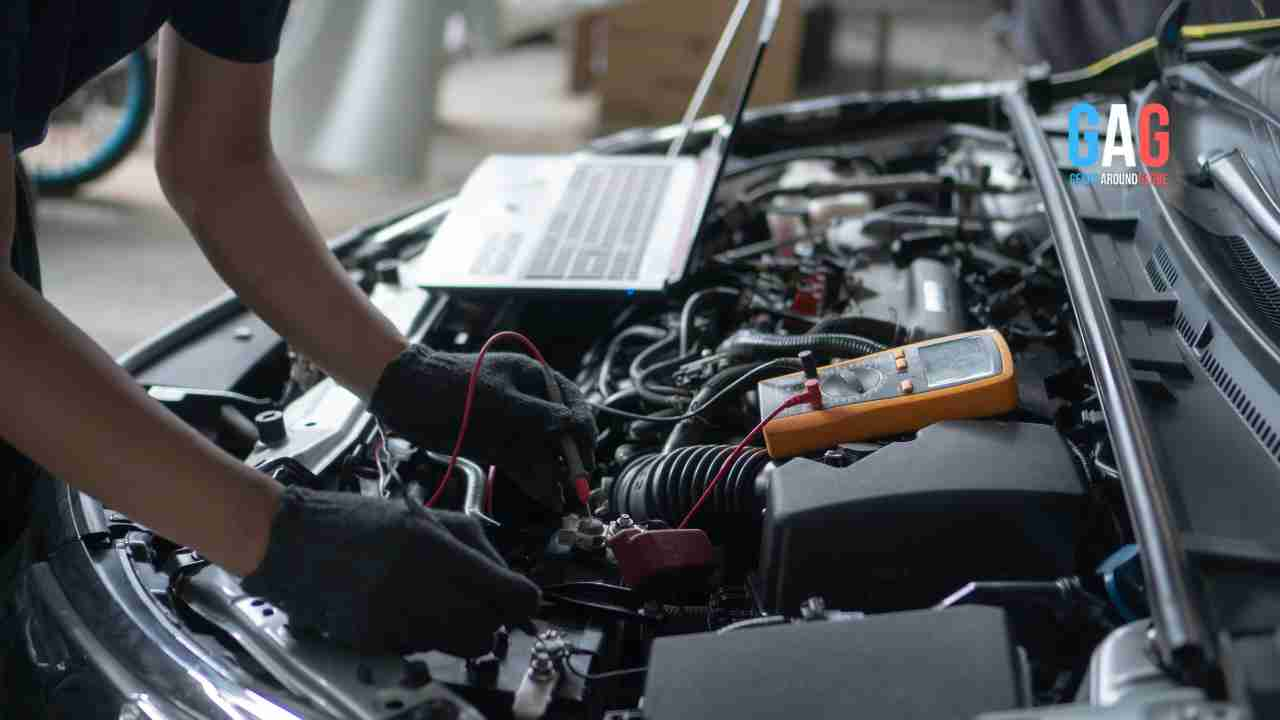- 1. The True Cost of Neglect
- 2. The Benefits of Routine Car Maintenance
- 2.1. 1. Prolonged Vehicle Lifespan: Drive Your Car into Retirement
- 2.2. 2. Improved Fuel Efficiency: Miles per Gallon, Not Dollars per Mile
- 2.3. 3. Higher Resale Value: Get More Bang for Your Buck
- 2.4. 4. Safer Travels: No Compromises on Safety
- 2.5. 5. Reduced Repair Costs: A Stitch in Time Saves Nine
- 3. FAQs: Your Roadmap to Financially Savvy Car Ownership
- 4. Conclusion
When it comes to your vehicle, the old adage holds true: “An ounce of prevention is worth a pound of cure.” We’ve all heard it before, but have you truly embraced the wisdom behind it? In this article, we’re going to delve into the world of car maintenance and explore why keeping up with routine car maintenance tasks is not just a good idea but a financially savvy one.
Let’s hit the road and discover how a little TLC for your car, through routine car maintenance, can save you from breaking the bank.
The True Cost of Neglect
The road to financial prudence often starts with avoiding unnecessary expenses. And one area where these expenses tend to pile up is in the form of car repairs that could have been easily prevented. Let’s break down why neglecting routine maintenance is a costly mistake:
1. Engine Troubles: A Costly Quandary
Neglecting regular oil changes, one of the most fundamental maintenance tasks, can lead to engine troubles down the line. Think of engine oil as your car’s lifeblood; without it, your engine’s components grind together and wear out faster. This can result in a hefty repair bill or even an engine replacement.
2. Transmission Woes: A Gearhead’s Nightmare
Routine maintenance includes checking and changing transmission fluid. Ignore this, and you might find yourself facing a transmission overhaul – a repair that could set you back thousands of dollars. That’s not exactly a small change!
3. Brakes: The Cost of Stopping Too Late
Your brakes are your car’s best friend when it comes to safety. Neglecting brake maintenance can lead to brake pad and rotor damage, resulting in a much higher bill than a simple brake pad replacement.
4. Tire Troubles: Balancing Act
Tires play a crucial role in your vehicle’s overall performance and safety. Failing to rotate and balance them regularly can lead to uneven wear and tear, decreased fuel efficiency, and even blowouts on the highway. Replacing tires prematurely is an expense you could easily avoid.
5. Electrical Issues: Shock to the System
Modern cars are packed with electronic components. Ignoring issues like a malfunctioning alternator or a dead battery can result in costly electrical system repairs.
6. Cooling System Catastrophe
Overheating can be a death sentence for your engine. Regularly checking and replacing coolant can prevent your engine from turning into a smoldering, money-burning mess.
The Benefits of Routine Car Maintenance
Now that we’ve painted a vivid picture of the financial quagmire you might face without routine car maintenance, let’s explore why investing in it is the smartest move you can make for your vehicle and your wallet.
1. Prolonged Vehicle Lifespan: Drive Your Car into Retirement
Routine maintenance keeps your car running smoothly, extending its lifespan. A well-maintained car can serve you faithfully for many years, saving you the substantial expense of buying a new one.
2. Improved Fuel Efficiency: Miles per Gallon, Not Dollars per Mile
Regular tune-ups and maintenance tasks, such as air filter changes and fuel system cleaning, can significantly improve your vehicle’s fuel efficiency. You’ll spend less at the pump and more money stays in your pocket.
3. Higher Resale Value: Get More Bang for Your Buck
When the time comes to sell your car, a well-documented maintenance history can significantly increase its resale value. Buyers are more willing to pay a premium for a vehicle that has been well taken care of.
4. Safer Travels: No Compromises on Safety
Routine maintenance ensures that your car is safe to drive. Addressing brake issues, worn-out tires, and other safety-related concerns can prevent accidents and costly medical bills.
5. Reduced Repair Costs: A Stitch in Time Saves Nine
By catching and addressing issues early through routine maintenance, you can avoid major breakdowns and the sky-high repair costs that come with them.
FAQs: Your Roadmap to Financially Savvy Car Ownership
Q1: How often should I perform routine car maintenance?
A1: The frequency of maintenance tasks can vary, but it’s typically recommended to follow your vehicle manufacturer’s guidelines, which can be found in the owner’s manual. Additionally, some tasks like oil changes are generally recommended every 3,000 to 5,000 miles.
Q2: Can I perform routine maintenance tasks myself?
A2: Some maintenance tasks, like checking and topping off fluids, can be done by car owners with basic knowledge and tools. However, more complex tasks should be left to professionals to ensure safety and effectiveness.
Q3: Is it worth investing in routine maintenance for an older vehicle?
A3: Absolutely. Even older cars can benefit from routine maintenance. It can help prevent costly breakdowns and extend the life of your older vehicle, ultimately saving you money.
Conclusion
In the world of car ownership, a little proactive care goes a long way. Routine car maintenance may seem like an inconvenience, but it’s a financial lifeline. It’s the difference between smooth rides and costly repairs, between economical fuel consumption and frequent fill-ups, and between a car that lasts and one that leaves you stranded.
So, the next time you’re tempted to skip that oil change or delay those brake repairs, remember that preventing costly repairs through routine car maintenance is worth every penny. It’s not just good for your car; it’s a smart financial move that can keep your bank account in the black and your wheels on the road. Don’t wait until your vehicle leaves you stranded on the side of the road; invest in maintenance today and drive confidently into the future.







